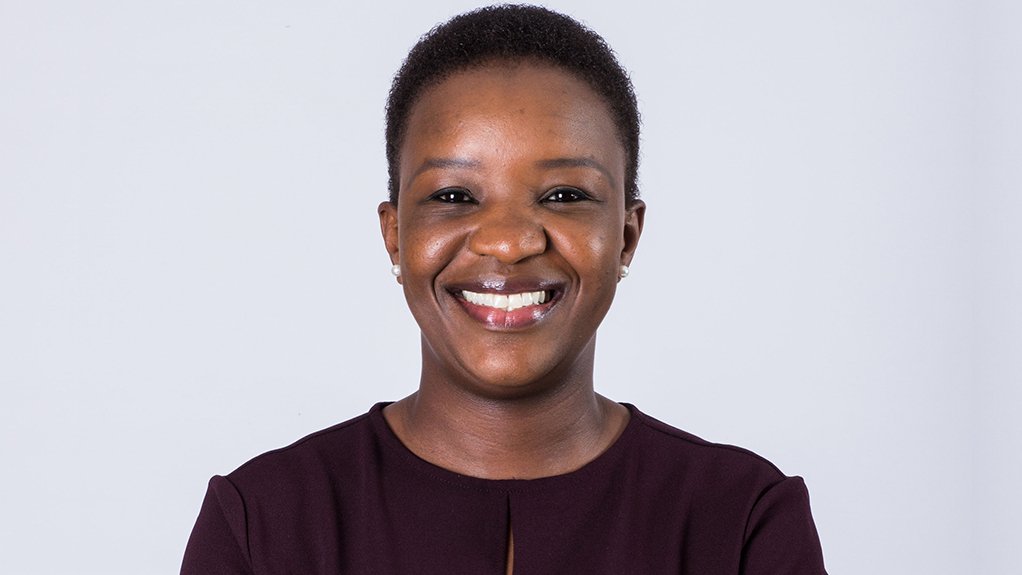Public consultation key part of law development, but often overlooked – Mavuso
Following last week’s withdrawal of proposed new visa regulations that would have eased the way for skilled workers to come to South Africa, business organisation Business Leadership South Africa (BLSA) CEO Busisiwe Mavuso says comments from the public and business sector are often overlooked by government.
“In the case of the visa regulations, the proposed changes were welcomed by BLSA. However, poorly conceived legislation often works its way into the lawbooks without any apparent notice of the public comments received,” she notes in her latest weekly newsletter.
In this regard, she highlights that BLSA and Business Unity South Africa (Busa) had provided input on the latest Companies Act Amendment Bill.
While there are positives to the amendments, such as embracing technology to improve the efficiency with which businesses can operate, Mavuso points out that there are some significant negatives.
She warns that these are likely to have unintended consequences, increasing the compliance costs, particularly for small businesses and, in some cases, making it impossible for companies to operate.
For example, she argues that the ‘one strike rule’ – which requires that nonexecutive directors serving on a remuneration committee must step down in the event that shareholders do not approve the implementation report of a remuneration policy – is likely to make it difficult for all but the biggest companies to retain competent nonexecutives and make their remuneration committees effective.
“There are also several parts of the Bill that are simply ambiguous and will create unnecessary litigation as stakeholders turn to the courts to get clarity. Despite our detailed submissions on all of these issues, Parliament simply approved the draft Bill without change and submitted it for the President’s signature where it now sits.”
Further, while business suggested alternatives to the National Health Insurance Bill that are viable and would support improvements in access to healthcare, requiring minimal amendment to the draft Bill, Mavuso says the proposals were “roundly ignored and Parliament forged ahead with putting the totally unworkable legislation on the books”.
Noting that the Constitutional framework makes consultation a key part of the development of laws, she argues that public consultation cannot just be a matter of procedure but must include proper consideration of the input received, as stipulated in the Promotion of Administrative Justice Act.
“It is hard to believe that there has been proper consideration when draft legislation is finalised without change after a comment period.
“This is not just a cost to those of us who spend time and money on providing comment, but also to the government. When laws are ambiguous or unconstitutional, they will inevitably end up being challenged in court, requiring government to pay for legal processes.
“Many of these lead to amendments. It could all be avoided by properly engaging with public input and getting the legislation right in the first place.”
Mavuso adds that laws should also be subject to a socioeconomic-impact assessment, in line with the socioeconomic-impact assessment system managed by the Presidency.
“But these assessments, when undertaken, are often perfunctory and a missed opportunity to improve laws and regulations to maximise the public benefit,” she says.
“My call is to our counterparts in government who are working on laws and regulations. We have resources that we put into helping the process. We need engaged counterparts who can genuinely consider the inputs we provide and act where there is an opportunity to improve legislation. That is what the Constitution envisages because it is how we get to become a country that realises its potential,” she concludes.
Comments
Press Office
Announcements
What's On
Subscribe to improve your user experience...
Option 1 (equivalent of R125 a month):
Receive a weekly copy of Creamer Media's Engineering News & Mining Weekly magazine
(print copy for those in South Africa and e-magazine for those outside of South Africa)
Receive daily email newsletters
Access to full search results
Access archive of magazine back copies
Access to Projects in Progress
Access to ONE Research Report of your choice in PDF format
Option 2 (equivalent of R375 a month):
All benefits from Option 1
PLUS
Access to Creamer Media's Research Channel Africa for ALL Research Reports, in PDF format, on various industrial and mining sectors
including Electricity; Water; Energy Transition; Hydrogen; Roads, Rail and Ports; Coal; Gold; Platinum; Battery Metals; etc.
Already a subscriber?
Forgotten your password?
Receive weekly copy of Creamer Media's Engineering News & Mining Weekly magazine (print copy for those in South Africa and e-magazine for those outside of South Africa)
➕
Recieve daily email newsletters
➕
Access to full search results
➕
Access archive of magazine back copies
➕
Access to Projects in Progress
➕
Access to ONE Research Report of your choice in PDF format
RESEARCH CHANNEL AFRICA
R4500 (equivalent of R375 a month)
SUBSCRIBEAll benefits from Option 1
➕
Access to Creamer Media's Research Channel Africa for ALL Research Reports on various industrial and mining sectors, in PDF format, including on:
Electricity
➕
Water
➕
Energy Transition
➕
Hydrogen
➕
Roads, Rail and Ports
➕
Coal
➕
Gold
➕
Platinum
➕
Battery Metals
➕
etc.
Receive all benefits from Option 1 or Option 2 delivered to numerous people at your company
➕
Multiple User names and Passwords for simultaneous log-ins
➕
Intranet integration access to all in your organisation





















